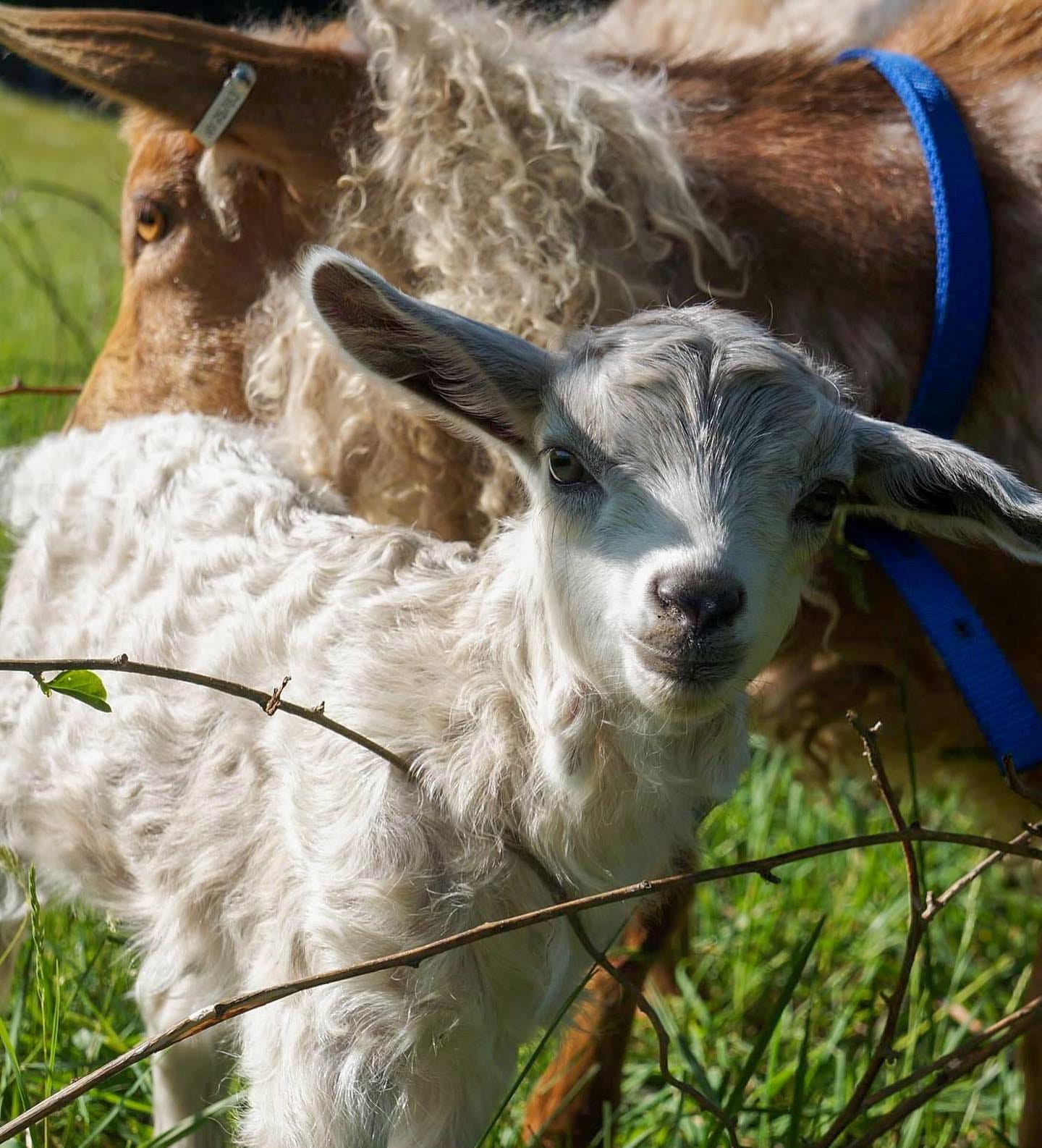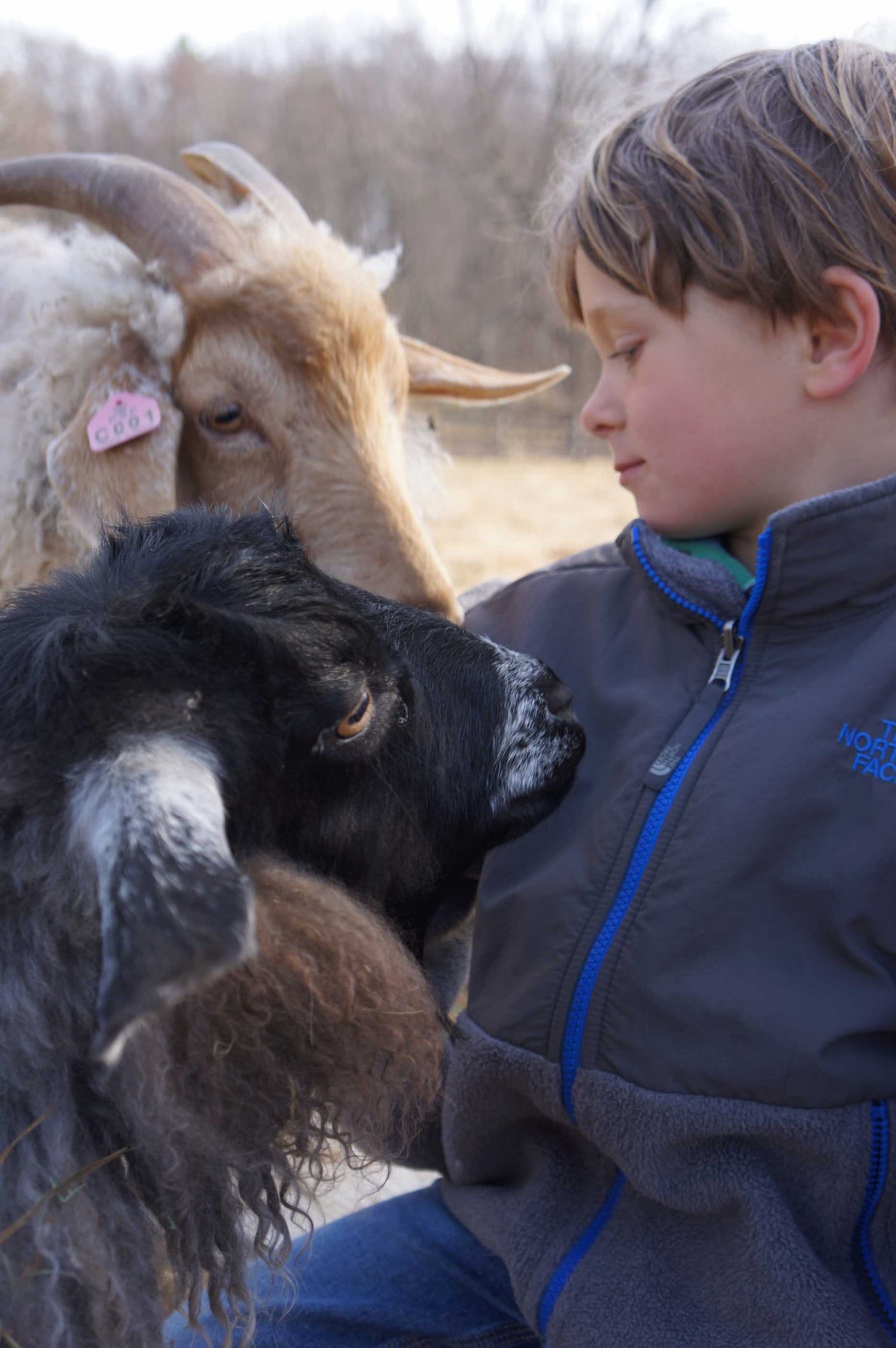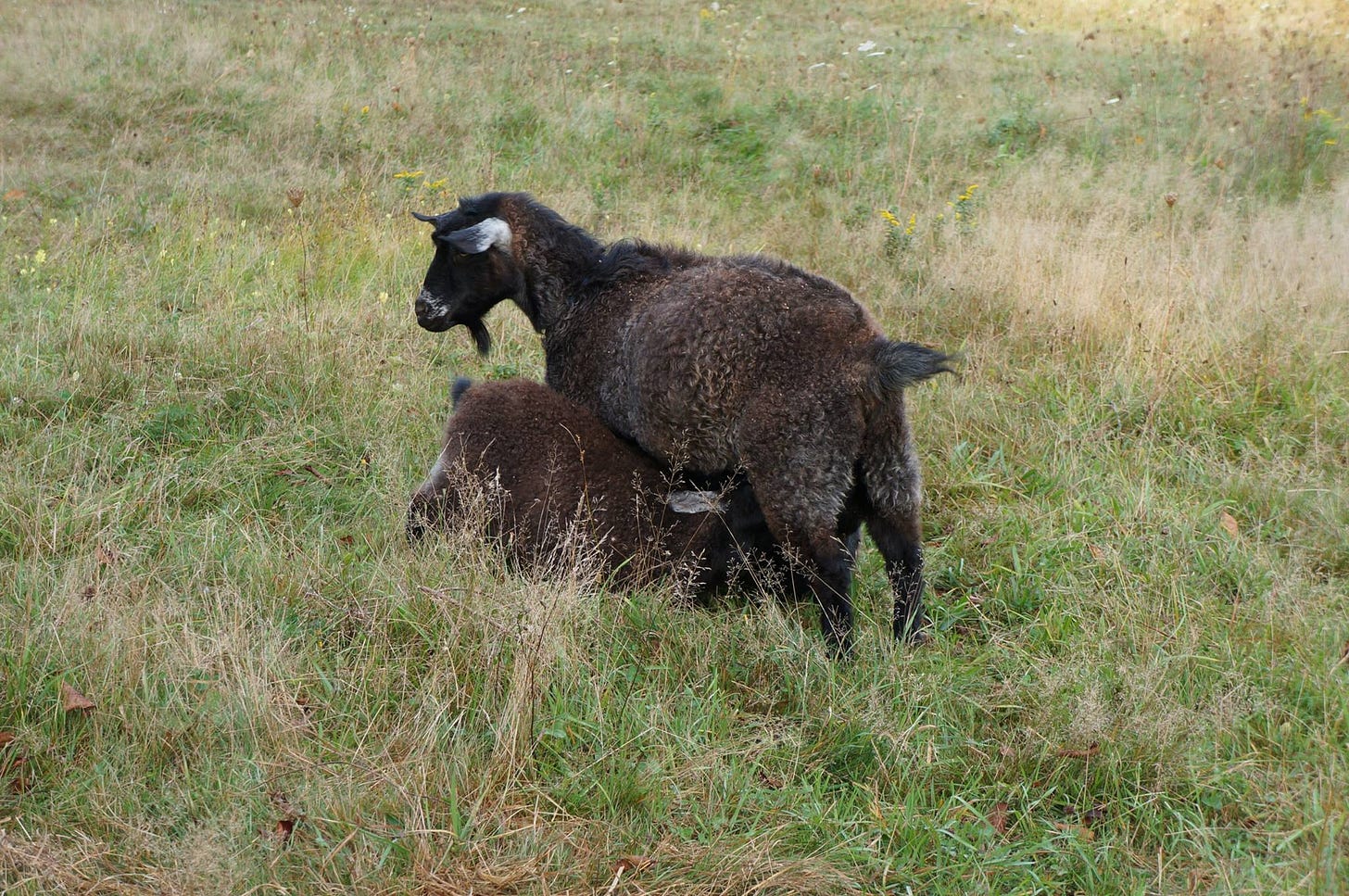When we first decided to embrace homesteading as a lifestyle, we started with chickens (raise your hand if this was your first backyard farm animal).
Within just a few months I was ambitiously trying to decide how to expand our small 2 acre homestead in upstate NY and settled on the idea of getting goats. Well over a decade later - this was one of the best homestead decisions I’ve made.
For many, goats are the perfect next step on the homesteading journey. In today’s newsletter I’m going to explore the pros and a few cons to these animals and how our small herd of Pygora goats are a great backyard farming fit.
Why you should get Goats
Sustainable Land Management: Goats are natural grazers and can help maintain vegetation on your homestead by clearing brush, weeds, and unwanted vegetation, reducing the need for mowing or herbicides.
Diverse Products: Goats provide various products, including milk, meat, fiber, and even companionship, offering homesteaders a versatile source of food and resources.
Self-Sufficiency: Raising goats allows homesteaders to produce their own dairy products, meat, and fiber, contributing to greater self-sufficiency and reducing reliance on store-bought goods.
Natural Fertilization: Goat manure is an excellent natural fertilizer, rich in nutrients that can improve soil fertility and promote healthy plant growth on your homestead.
Low Cost of Entry: Compared to larger livestock such as cattle or horses, goats have a relatively low cost of entry in terms of initial purchase price, feed, and housing requirements, making them accessible to small-scale homesteaders.
Why Goats Might not be a Good Choice
Fencing Requirements: Effective fencing is important for containing goats, as they are notorious escape artists and may damage property or wander into neighboring areas if not properly contained. Investing in sturdy fencing can be costly. When our goats were young they escaped a lot. If you live near a busy road or have poisonous plants around, goats might not be a good choice.
Space Considerations: While goats are smaller than some livestock, they still require adequate space to roam, graze, and exercise. Limited space on a small homestead may restrict the number of goats you can raise and may require rotational grazing or supplemental feeding. You need at least 50 square feet of land for each goat (15 square feet should be in a shelter).
Time Commitment: Raising goats requires a significant time commitment for daily feeding, milking (if applicable), health care, and general maintenance. Homesteaders must be prepared to invest time and effort into caring for their goats year-round.
Health Care Needs: Like all animals, goats require regular health care, including vaccinations, deworming, hoof trimming, and monitoring for common ailments such as parasites and diseases. Veterinary care can incur additional costs and time investment.
Noise and Odor: Goats can be noisy animals, especially during breeding season or when separated from their herd mates. Additionally, goat pens may produce odors, particularly if not properly managed or cleaned regularly. Bucks in particular are stinky!
Predator Concerns: Goats are vulnerable to predation from predators such as coyotes, foxes, dogs, and even large birds of prey when they are young. Implementing predator-proofing measures and providing secure shelter can help mitigate these risks.
Consider Pygora Goats
Now that I’ve either convinced you to get or not get goats on your homestead, it’s time to decide what breed is right for you. Introducing the Pygora Goat. This is the breed of goat we’ve been raising and we think it is an ideal choice for beginners!
Pygora goats are generally easy to manage, medium-sized animals resulting from a crossbreeding of Pygmy and Angora goats. They have a fiber similar to that of Angora goats and exhibit good milking capabilities like Pygmy goats, yielding up to a quart of milk per day. While Pygoras vary in size, they typically fall into the category of medium-sized goats.
As a cross between a registered NPGA Pygmy goat and a registered AAGBA White Angora goat, Pygora goats come in a diverse spectrum of colors, ranging from pristine white and deep black to rich caramel hues.
Recognized for their ease of care, resilience, birthing ease, and manageability, Pygora goats present minimal challenges compared to larger breeds. They typically have a playful demeanor, particularly during their youth, often engaging in mischief such as fence-jumping and playful antics.
We’ve been raising a small herd of Pygora goats and enjoy them for their fiber, milk, personalities and ability to clear brush. For us - this breed is the perfect homesteading goat.
Looking for more about Pygora Goats? Check out our guide to Raising Pygoras.
This week you might also enjoy:
Happy Homesteading,
Gretchen







